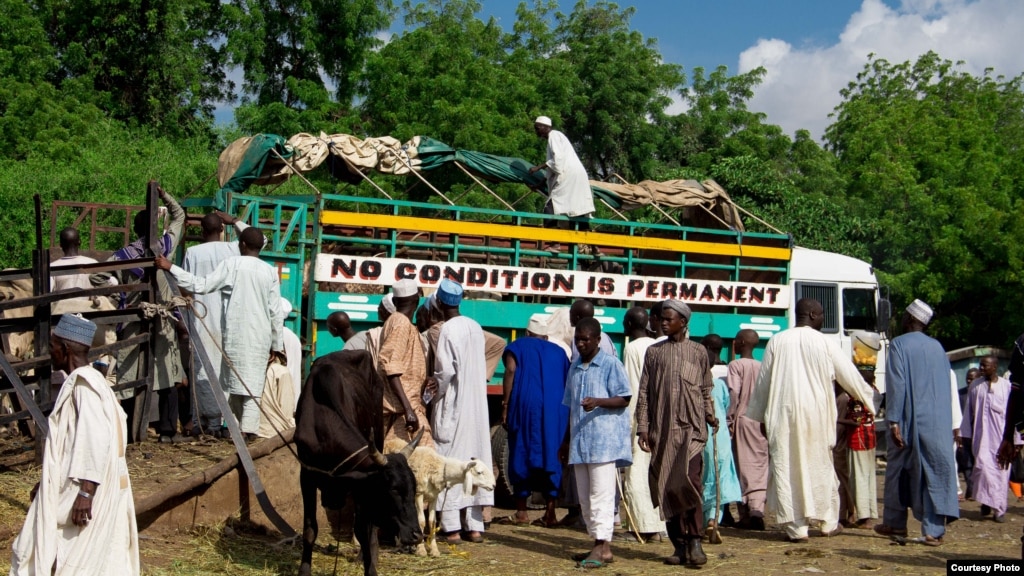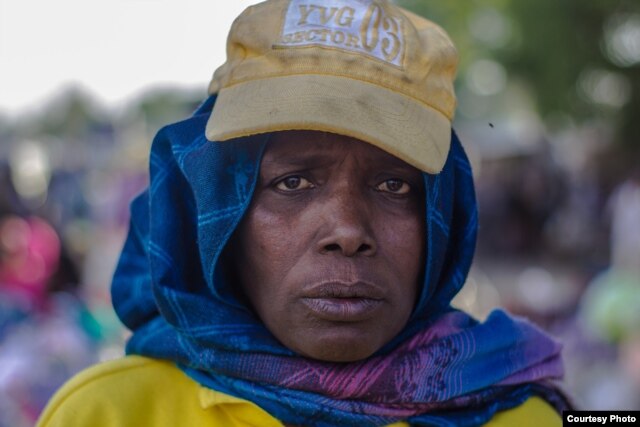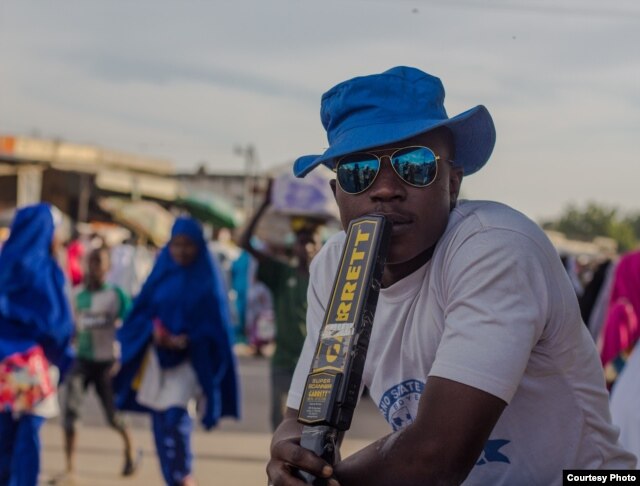
In a city known for violence, Fati Abubakar walks the streets of Maiduguri armed with a camera. Her mission: to rebuild the reputation of the Borno State capital, widely known as the birthplace of the brutal Boko Haram insurgency.
Since last September, the volunteer aid worker has taken pictures of people, interviewed them and posted the results on social media. She calls her project “Bits of Borno.”
“It’s everyday life in Borno State, something you don’t usually see,” Abubakar told VOA in an interview in Nigeria’s capital Abuja.
Hajja
Hauwa, one of the few females in the vigilante group in Maiduguri, is
in charge of security checks for women coming into Monday market,
Maiduguri. (Fati Abubakar)
After years of deadly gun and bomb attacks, many Nigerians see Borno State and its capital Maiduguri as synonymous with Boko Haram. Much of the Borno countryside is unsafe, and the insurgents have effectively razed several of the state’s major towns.
In Maiduguri, the militants have bombed and shot their way through churches, mosques, bus stations and marketplaces, and last year made an unsuccessful attempt to overrun the city.
All told, more than 20,000 people are thought to have died in the group’s seven-year quest to impose strict Islamic law in Nigeria’s north.
But Abubakar remembers growing up in a Maiduguri different from the one she lives in today. It was the kind of city, she said, where neighbors shared meals and watched each other’s children.
“The way people view us as bomb blast city or something ... I want them to see us as people who are stronger because of what happened,” Abubakar said.
Mohammed,
one of the youth vigilantes as part of the Borno Youth Empowerment
Scheme, at his post in Monday Market, Maiduguri. (Fati Abubakar)
Her subjects range from market traders, to billiards enthusiasts, to members of the self-defense groups that patrol Maiduguri’s streets. She posts their portraits, along with brief snippets from their interview, on the project’s Facebook, Twitter and Instagram accounts.
Social media, she said, is the ideal way to reach Nigeria’s large and far-flung population.
“We don’t really have a reading culture in Nigeria,” Abubakar said. “I felt like photography will ... show exactly what I want to show without saying much. It just will speak for itself.”
While security has improved in recent months, attacks occur occasionally on Maiduguri’s outskirts and the city remains tense.
Abubakar sometimes faces suspicion from people she tries to interview and has been questioned by the soldiers who man checkpoints and patrol Maiduguri’s streets. But she says many people are relieved to talk about the stresses of life in the city, even to a stranger.
“It’s more like, 'I am just tired of this burden of carrying around what I’m feeling, I would like to tell someone.' So people are very open,” Abubakar said.
Maiduguri used to be a trading hub for Nigeria’s northeast and for merchants crossing into Nigeria from nearby Chad, Cameroon and Niger. But years of violence have driven away residents and traders alike.
For months, the city’s airport was shut down, leaving a single treacherous road as the only way to reach the city.
That’s taken a toll on Maiduguri’s culture and neighborhoods, Abubakar said. Buildings are being neglected, and people are forgetting how life in Nigeria’s second-largest state once was.
“When you take a picture of a building and you post it and people say, ‘Oh this reminds of my childhood, this is where I used to live,’” Abubakar said. “I think it’s helping people see what it was, what it is and, hopefully, what it will be.”



No comments:
Post a Comment